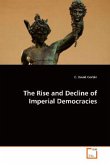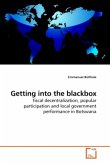This book examines the veracity of longstanding
claims that military leaders develop a coherent
public ideology that is, first, distinct from those
of their parent society and, second, that this
belief system is predictably conservative in
character. In the American case, these claims depict
self-selected and socialized military leaders as
sharing in a conservative "military mind" that
remains isolated from the mainstream of the American
liberal tradition. Using a combination of Q-method
public values sorting exercises followed by semi-
structured, in-depth interviews, these arguments are
tested through an intensive examination of the
public philosophies of forty-five mid-level and
senior U.S. Army officers and forty-five civilian
community and business leaders. The findings
challenge existing shibboleths regarding the
prospect of a "military mind," while questioning
attendant claims regarding the capacity of military
service to shape individuals' public values. In
place of ideological solidarity, one finds a
diversity of value orderings and descriptions that
do not easily fit the typical military-civilian
categories.
claims that military leaders develop a coherent
public ideology that is, first, distinct from those
of their parent society and, second, that this
belief system is predictably conservative in
character. In the American case, these claims depict
self-selected and socialized military leaders as
sharing in a conservative "military mind" that
remains isolated from the mainstream of the American
liberal tradition. Using a combination of Q-method
public values sorting exercises followed by semi-
structured, in-depth interviews, these arguments are
tested through an intensive examination of the
public philosophies of forty-five mid-level and
senior U.S. Army officers and forty-five civilian
community and business leaders. The findings
challenge existing shibboleths regarding the
prospect of a "military mind," while questioning
attendant claims regarding the capacity of military
service to shape individuals' public values. In
place of ideological solidarity, one finds a
diversity of value orderings and descriptions that
do not easily fit the typical military-civilian
categories.








